Fulton DA Gets Justices' Hint, Drops Appeal, but Campaigns for New Law
Beyond an argument over who was acting more "bizarre" lies the question of trial judges' power to overturn jury verdicts based on credibility determinations.
November 05, 2019 at 06:03 PM
5 minute read
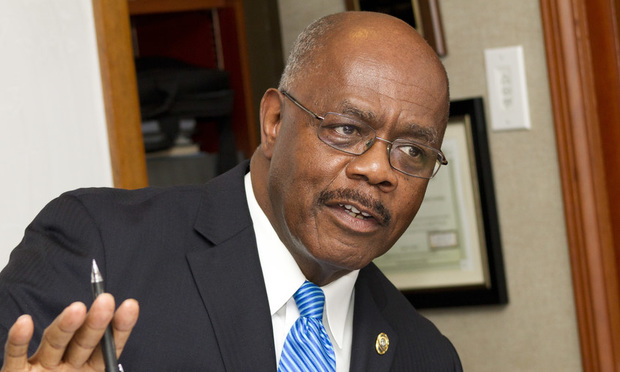 Fulton County District Attorney Paul Howard (Photo: John Disney/ALM)
Fulton County District Attorney Paul Howard (Photo: John Disney/ALM)
After exchanging salvos with the state Supreme Court about who was acting in a "bizarre" fashion, Fulton County's district attorney dropped a type of appeal that the justices suggested was wasting everyone's time.
 Georgia Gov. Brian Kemp.
Georgia Gov. Brian Kemp.But Fulton DA Paul Howard Jr. embarked on a campaign he said was backed by many other prosecutors to push Gov. Brian Kemp for legislation that would curb trial judges' power to act as a "13th juror" and undo jury verdicts.
Two days before oral arguments, Howard withdrew the state's appeal of a Fulton County judge's decision to grant a new trial to convicted murderer Terron "Red" Clark. At issue was the "13th juror" power based on a state law allowing judges to overturn jury verdicts they find "contrary to evidence and the principles of justice and equity."
In a separate case last week, the high court unanimously upheld a Fulton County judge's decision to overturn a murder conviction based on her view that the prosecution's evidence was "weak" and full of "conflicting evidence and credibility concerns."
 Justice Sarah H. Warren, Georgia Supreme Court.
Justice Sarah H. Warren, Georgia Supreme Court.In that ruling, Justice Sarah H. Warren wrote for the court that the state's argument—the guilty verdict was demanded by the "great physical laws of the universe"—was "bizarre."
Presiding Justice David Nahmias, joined by Warren and five other justices, added separately that prosecutors' appeals of judges' "13th juror" decisions based on the credibility determinations have "no realistic chance to prevail."
Nahmias warned prosecutors to "think hard" whether an appeal on that basis would be "a waste of the limited resources of the State, the publicly funded lawyers who represent most of the defendants in these cases, and this Court."
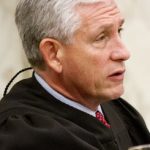 Presiding Justice David Nahmias, Supreme Court of Georgia.
Presiding Justice David Nahmias, Supreme Court of Georgia.Responding in a news release last week, Howard said, "What strikes the State as 'bizarre' are the actions of the trial judge who waited three years to deliver the granting of a new trial and who issued the ruling on her last day in office."
He added, "This Court decided to ridicule prosecutors for filing an objection to an outrageous process. Such action by the Court, in my humble opinion, with all due respect—is 'bizarre.'"
On Tuesday, Howard told the Daily Report in an email, "Based upon the tone of the Georgia Supreme Court's ruling last week in (State v. Beard), the State will forego its appeals of the usage of the '13th Juror' statute in lieu of legislative action."
Howard included a letter he sent to Gov. Brian Kemp, urging a change in the "13th juror" law. "Allowing the Judges to single-handedly undo all the hard work of a criminal jury is a slippery slope ripe for abuse," Howard wrote.
He asked Kemp to direct state Attorney General Chris Carr to draft legislation "correcting this injustice," adding that district attorneys "across the state will happily assist" in the effort.
Despite his frustration with judges using the "13th juror" power, Howard did not push for a categorical ban. He noted how, early in his career when he was a criminal defense attorney, one of his clients was granted a new trial, but that matter was "exceptional" and "why the statute was written."
A spokeswoman for Kemp declined to comment, noting his office received the letter Tuesday. Carr could not be reached by deadline. Pete Skandalakis, director of the Prosecuting Attorneys' Council of Georgia, referred a call to Layla Zon, the Alcovy Circuit district attorney who heads the state's District Attorneys Association. She had no comment by deadline.
Andrew Fleischman, who handles criminal defense appeals for Ross & Pines and isn't involved in the cases at hand, said defense lawyers also have borne the state high court's frustrations with appeals based on judicial credibility determinations.
Lawmakers shouldn't dilute Georgia's "13th juror" power because it pales in comparison to what judges can wield in other states. "This is our only gesture in this direction," he said.
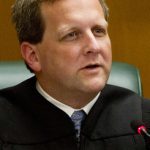 Justice Charlie Bethel, Supreme Court of Georgia.
Justice Charlie Bethel, Supreme Court of Georgia.At the Supreme Court on Tuesday, the justices heard arguments in another case dealing with a judge overturning part of a jury verdict in a criminal case. During the argument, Justice Charlie Bethel noted the "13th juror" power is based on statutes and probably common law dating back to at least 1799.
This content has been archived. It is available through our partners, LexisNexis® and Bloomberg Law.
To view this content, please continue to their sites.
Not a Lexis Subscriber?
Subscribe Now
Not a Bloomberg Law Subscriber?
Subscribe Now
NOT FOR REPRINT
© 2025 ALM Global, LLC, All Rights Reserved. Request academic re-use from www.copyright.com. All other uses, submit a request to [email protected]. For more information visit Asset & Logo Licensing.
You Might Like
View All
Trial Court Had No Authority to Reopen Voir Dire After Jury Impaneled in Civil Case, State Appellate Court Rules
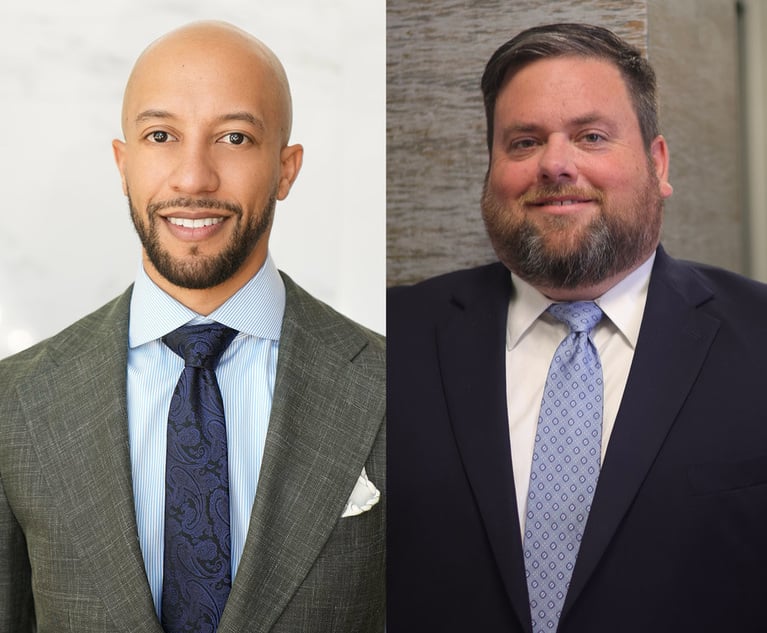
'Pushed Into Oncoming Traffic': $5.85M Settlement in Mediated Auto Tort
6 minute read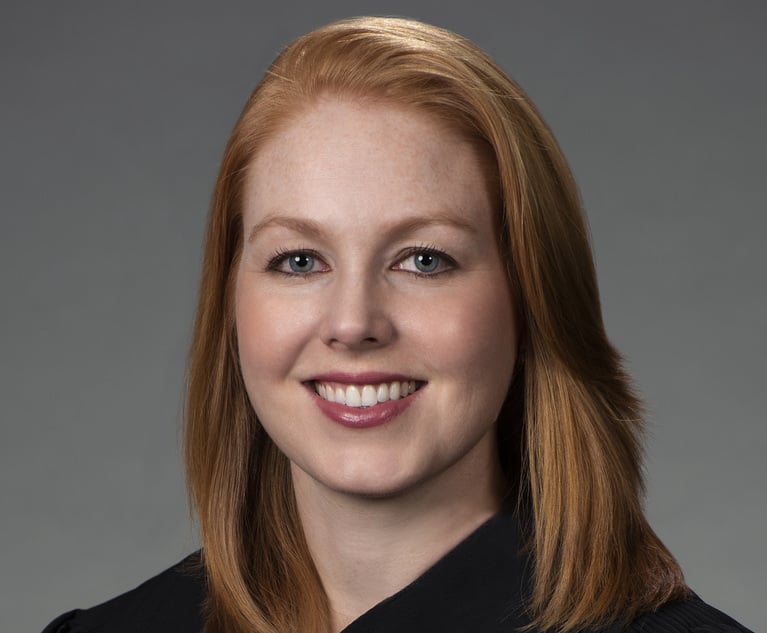
Justice Known for Asking 'Tough Questions' Resolves to Improve Civility
4 minute readTrending Stories
- 1Silk Road Founder Ross Ulbricht Has New York Sentence Pardoned by Trump
- 2Settlement Allows Spouses of U.S. Citizens to Reopen Removal Proceedings
- 3CFPB Resolves Flurry of Enforcement Actions in Biden's Final Week
- 4Judge Orders SoCal Edison to Preserve Evidence Relating to Los Angeles Wildfires
- 5Legal Community Luminaries Honored at New York State Bar Association’s Annual Meeting
Who Got The Work
J. Brugh Lower of Gibbons has entered an appearance for industrial equipment supplier Devco Corporation in a pending trademark infringement lawsuit. The suit, accusing the defendant of selling knock-off Graco products, was filed Dec. 18 in New Jersey District Court by Rivkin Radler on behalf of Graco Inc. and Graco Minnesota. The case, assigned to U.S. District Judge Zahid N. Quraishi, is 3:24-cv-11294, Graco Inc. et al v. Devco Corporation.
Who Got The Work
Rebecca Maller-Stein and Kent A. Yalowitz of Arnold & Porter Kaye Scholer have entered their appearances for Hanaco Venture Capital and its executives, Lior Prosor and David Frankel, in a pending securities lawsuit. The action, filed on Dec. 24 in New York Southern District Court by Zell, Aron & Co. on behalf of Goldeneye Advisors, accuses the defendants of negligently and fraudulently managing the plaintiff's $1 million investment. The case, assigned to U.S. District Judge Vernon S. Broderick, is 1:24-cv-09918, Goldeneye Advisors, LLC v. Hanaco Venture Capital, Ltd. et al.
Who Got The Work
Attorneys from A&O Shearman has stepped in as defense counsel for Toronto-Dominion Bank and other defendants in a pending securities class action. The suit, filed Dec. 11 in New York Southern District Court by Bleichmar Fonti & Auld, accuses the defendants of concealing the bank's 'pervasive' deficiencies in regards to its compliance with the Bank Secrecy Act and the quality of its anti-money laundering controls. The case, assigned to U.S. District Judge Arun Subramanian, is 1:24-cv-09445, Gonzalez v. The Toronto-Dominion Bank et al.
Who Got The Work
Crown Castle International, a Pennsylvania company providing shared communications infrastructure, has turned to Luke D. Wolf of Gordon Rees Scully Mansukhani to fend off a pending breach-of-contract lawsuit. The court action, filed Nov. 25 in Michigan Eastern District Court by Hooper Hathaway PC on behalf of The Town Residences LLC, accuses Crown Castle of failing to transfer approximately $30,000 in utility payments from T-Mobile in breach of a roof-top lease and assignment agreement. The case, assigned to U.S. District Judge Susan K. Declercq, is 2:24-cv-13131, The Town Residences LLC v. T-Mobile US, Inc. et al.
Who Got The Work
Wilfred P. Coronato and Daniel M. Schwartz of McCarter & English have stepped in as defense counsel to Electrolux Home Products Inc. in a pending product liability lawsuit. The court action, filed Nov. 26 in New York Eastern District Court by Poulos Lopiccolo PC and Nagel Rice LLP on behalf of David Stern, alleges that the defendant's refrigerators’ drawers and shelving repeatedly break and fall apart within months after purchase. The case, assigned to U.S. District Judge Joan M. Azrack, is 2:24-cv-08204, Stern v. Electrolux Home Products, Inc.
Featured Firms
Law Offices of Gary Martin Hays & Associates, P.C.
(470) 294-1674
Law Offices of Mark E. Salomone
(857) 444-6468
Smith & Hassler
(713) 739-1250







